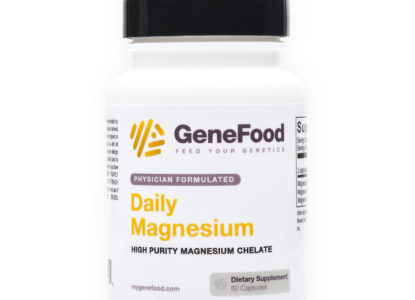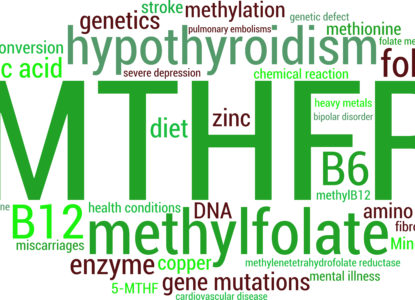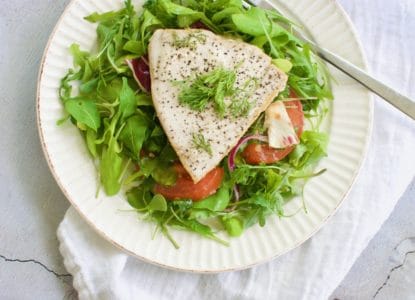How to Maximize the Health Benefits of Carotenoid Rich Foods
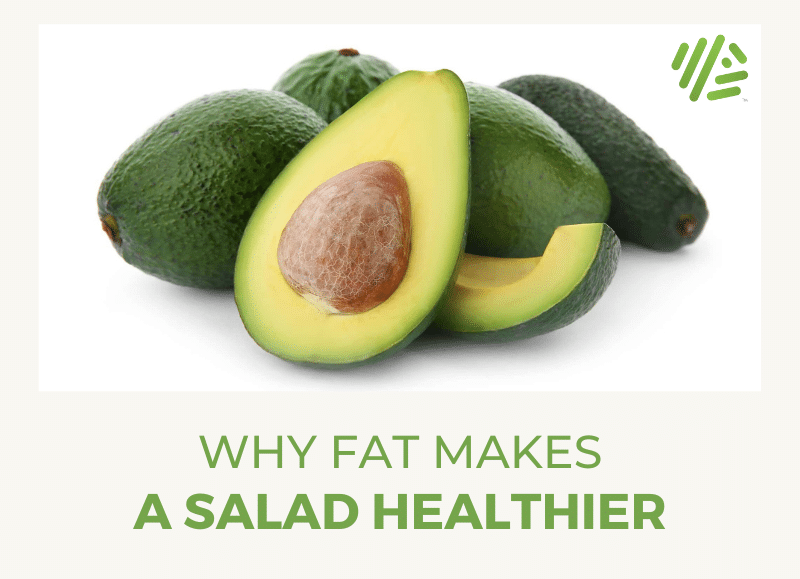
Contents
While researching the bioavailability of lycopene, our research team came across a series of interesting studies about how to maximize the benefits of a special type of antioxidant called carotenoids. It turns out, carotenoids, found in dark leafy greens, orange and deep red veggies are easier for our bodies to absorb when we pair them with fat.
What are carotenoids?
Lycopene is a well known type of carotenoid, as is beta-carotene. Carotenoids are a family of fat soluble antioxidants, found in plants, that are thought to be protective against certain diseases.
- Just like flavonoids are responsible for the color of apples, carotenoids are responsible for the vibrant color of tomatoes, carrots, and yams. Even romaine lettuce has beta-carotene.
- Carotenoids are particularly interesting, because they are fat soluble.
- Research shows that our bodies absorb significantly more carotenoids, like lycopene and beta carotene, when we eat them with fat.
Dietary fat increases carotenoid absorption
This study, performed at Ohio State, found lycopene absorption was increased 4.4 times as the result of adding avocado to salad. Adding 150g of avocado, or 24g avocado oil to salad, increased beta carotene absorption by 15 times. (R)
To quote the study:
adding avocado fruit can significantly enhance carotenoid absorption from salad and salsa, which is attributed primarily to the lipids present in avocado.
This next study says essentially the same thing, albeit with slightly different facts. These guys found that intestinal absorption of carotenoids, on a salad eaten with low fat dressing, was zero. Low fat dressing actually prevented the nutrients in a simple salad from benefiting test subjects. By contrast, eating the same salad with full fat dressing resulted in proper nutrient absorption. (R)
Essentially no absorption of carotenoids was observed when salads with fat-free salad dressing were consumed. A substantially greater absorption of carotenoids was observed when salads were consumed with full-fat than with reduced-fat salad dressing.
Yes, but which fats?
The salad dressing study referenced above used canola oil for the full fat dressing, which is not a choice I would make. I don’t want to be alarmist, but canola oil is high in omega 6 fatty acids.
When our omega 6 to omega 3 ratio gets out of whack, inflammation increases. Monounsaturated fat alternatives like avocado and olive oil healthier options for most people. For an informative primer, and interesting perspective, on omega 6 fats, take a look at this post from Mark’s Daily Apple.
If most of our omega-6 is coming from the linoleic acid found in cooking oils and processed baked goods, most of the omega-6 we’re eating is highly oxidized, rancid, and maybe even worse.
Mark’s basic argument is that most people get their omega 6 fats from refined oils, and that is probably not great for their health, but whole foods, like nuts and avocados, that have some omega 6 fat, but plenty of other good stuff, are good for us. (R) It’s really common sense, and similar to the argument I made in this post on MCT oil, namely that occasionally eating some saturated fat is probably not as bad for us as we’ve been led to believe, but that doesn’t mean taking synthetic mega doses of it is a great idea.
Benefits of Avocado and Olive Oil
The Conscious Life put together a fantastic resource comparing different types of cooking oil based on health metrics. I’ve reproduced the avocado and olive oil charts below. 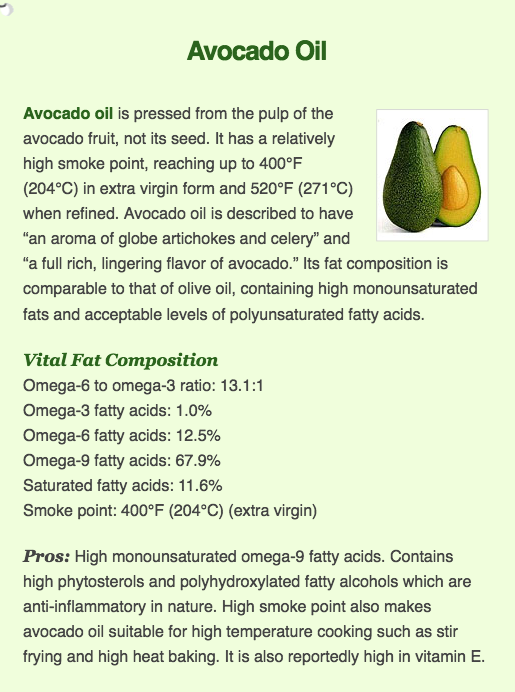
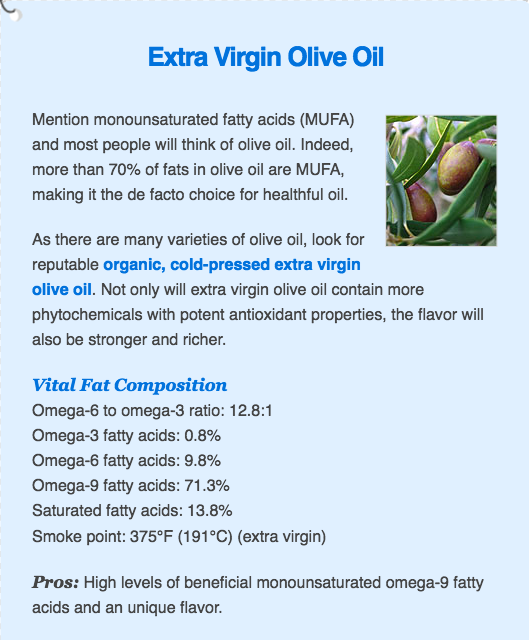
A healthy and versatile salad dressing recipe
Of course, I am biased, but I do consider my Mom to be one of the world’s great chefs. She never buys store bought salad dressing. Instead she makes a simple olive oil based dressing for all of our green salads.
- Nice quality extra virgin olive oil
- a teaspoon of dijon mustard
- apple cider vinegar
Whisk those three ingredients together and, boom, you have a perfect formula to enjoy a delicious salad and up your carotenoid absorption at the same time.

